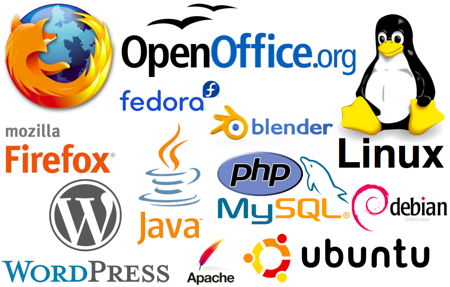Software comparison articles can be helpful, but most are horrible. They should educate, compare, and recommend. But usually, they’re just filler words that convey no actual meaning. Here are some common mistakes of horrible software comparisons…
Universally Picking a Winner
It’s ridiculous to pick a universal winner. Eg, if you’re comparing Event Espresso to EventBrite, it’s ridiculous to say “EventBrite is always better.” You’re comparing apples to oranges, even though they sound similar.
The ideal software always depends on your needs. It should meet your needs, but it should also do no more. Do you care if software can do a million things, but you only need it to do one? All those extra features actually become a problem, because it makes the software more complicated. The ideal software meets your needs and nothing more.
Even if EventBrite and Event Espresso both allow you to handle event registration and ticket sales, one is not universally better. It depends on your preferences and use-case. Event Espresso is run on a WordPress blog, where you can fully customize it, install all the other plugins you want, have full access to the data, do everything. So it’s better right? Yes, assuming you want to be responsible for keeping your website safe, fixing bugs you introduced through your customizations, and keep it all up-to-date. If you just want to sell tickets for a single event, don’t care what the website looks like, and don’t want to ever hear any acronyms like DNS, HTML or WYSIWYG, stick with EventBrite.
You can universally say one options is more widely used. Maybe you can also say one is more actively maintained. But the only reason you would say one system is better than the other is because you’re biased or their referral fee is higher 😈.
Universally Say “It Depends”
Affiliate marketers have started to realize it’s hard to pick a winner, so the next mistake they make is to cop-out and universally say “It Depends.”
To read a 700 word blog post and have it conclude with “It Depends” is a waste of my life. This is an admission of ignorance on the topic.
If you actually knew anything on the topic, you would have a justified opinion. You would clearly explain WHEN one system is better than the other. Eg, you would say “If running your own website scares you, stay as far away from Event Espresso as possible; but if you want complete control, don’t waste a second on EventBrite.” Tell me when you used each successfully, and when each was a nightmare to deal with. (Oh, what if you haven’t used each? Don’t write an article comparing them in the first place!)
We know “It Depends”. What we didn’t know was how clueless you were on the topic.
Drowning In Fluff
The best way to keep it simple is to keep it brief. But if a blogger was hired to write a software comparison and told to meet a minimum word count, they’re going to drown the message in filler words. We wanted a comparison saying how the systems are similar and how they’re different, not a load of fluff.
If you describe their features separately you’ve already blown it. First, tell me what they do the same. I won’t care about anything you say until that point. Only after that, tell me how they’re different.
For example, cringe with me for a moment as show how not to compare software systems:
EventBrite is hosted software for ticketing and accepts payments through PayPal.
Event Espresso is self-hosted software for ticketing and accepts payments through PayPal.
So, what’s the difference between the two? You need to go spelunking to find it.
How about this, instead:
EventBrite and Event Espresso both:
1. Are ticketing software
2. Accept payments through PayPal
But,
EventBrite is hosted
Event Espresso is self-hosted.
Notice how you immediately understand in what ways they can both meet your needs? And you immediately know the choice between them is primarily a decision between going hosted vs self-hosted? (By the way, “hosted” means the company has control of the server where the website is hosted; whereas “self-hosted” means you do.)
Just give me a list of their commonalities, and then a list of their differences. No fluff.
Conclusion
If a software review
- universally picks a winner, they don’t understand the use-cases
- ends with “it depends”, they didn’t know anything about the software to begin with, or
- drown you in fluff (instead of simply stating the commonalities and differences), it was their job to waste your time.
Writers beware! If you make one of those mistakes, I will mercilessly refer you to this post.
Was I too harsh? Or should I keep going? Please give me an ear load in the comments.






On a similar note, suggestions to “do your own research” are also a total cop-out. Of course people know they should do their own research. That’s actually what they’re doing when they’re reading your software review.
You may be right that people need to learn more, so tell them where they can learn about the details you didn’t go into, or how they can try it out themselves. Telling them “do your own research” is equivalent to saying “Actually, all the information I just provided doesn’t count as research. Because I know nothing. Go read someone else’s review.”